Outlook The
M AY/ JUNE
VOLUME 73
ISSUE 3
72 YEARS: 1951 – 2023 reformedfellowship.net
2023 DEDICATED TO THE EXPOSITION AND DEFENSE OF THE REFORMED FAITH
The Hope of God’s People
Heritage, History, and Christian Identity
Understanding Reformed Worship
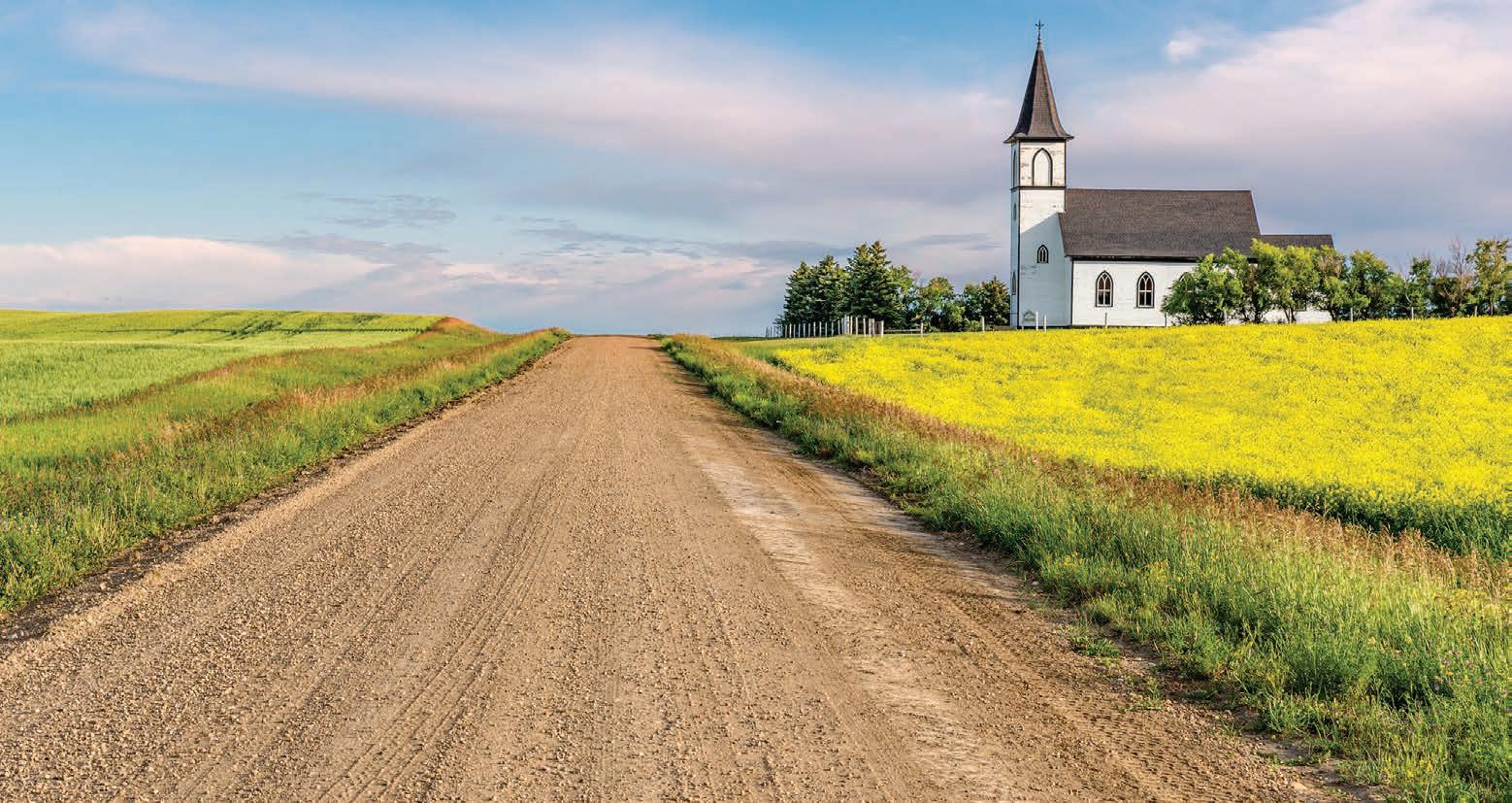

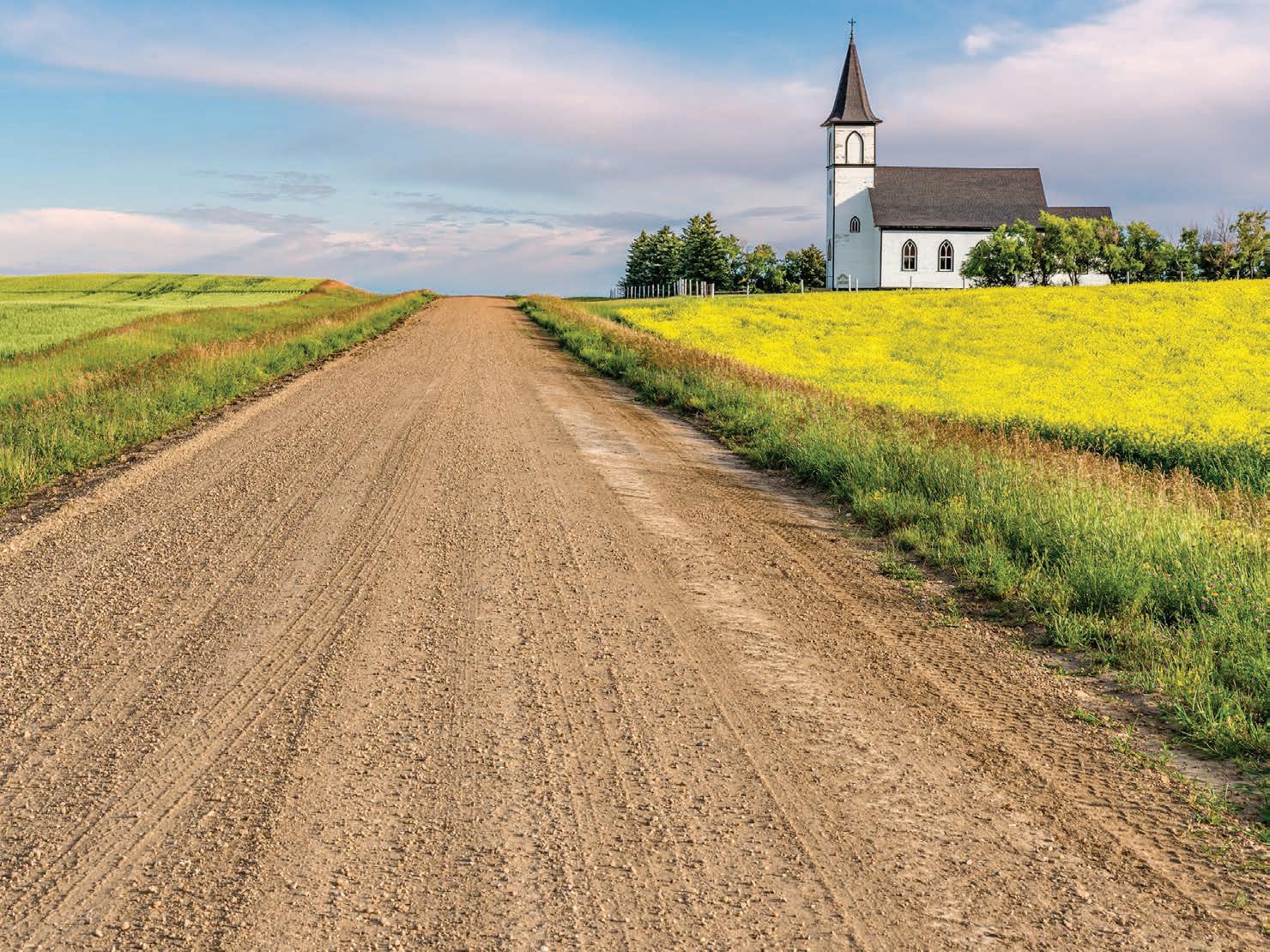

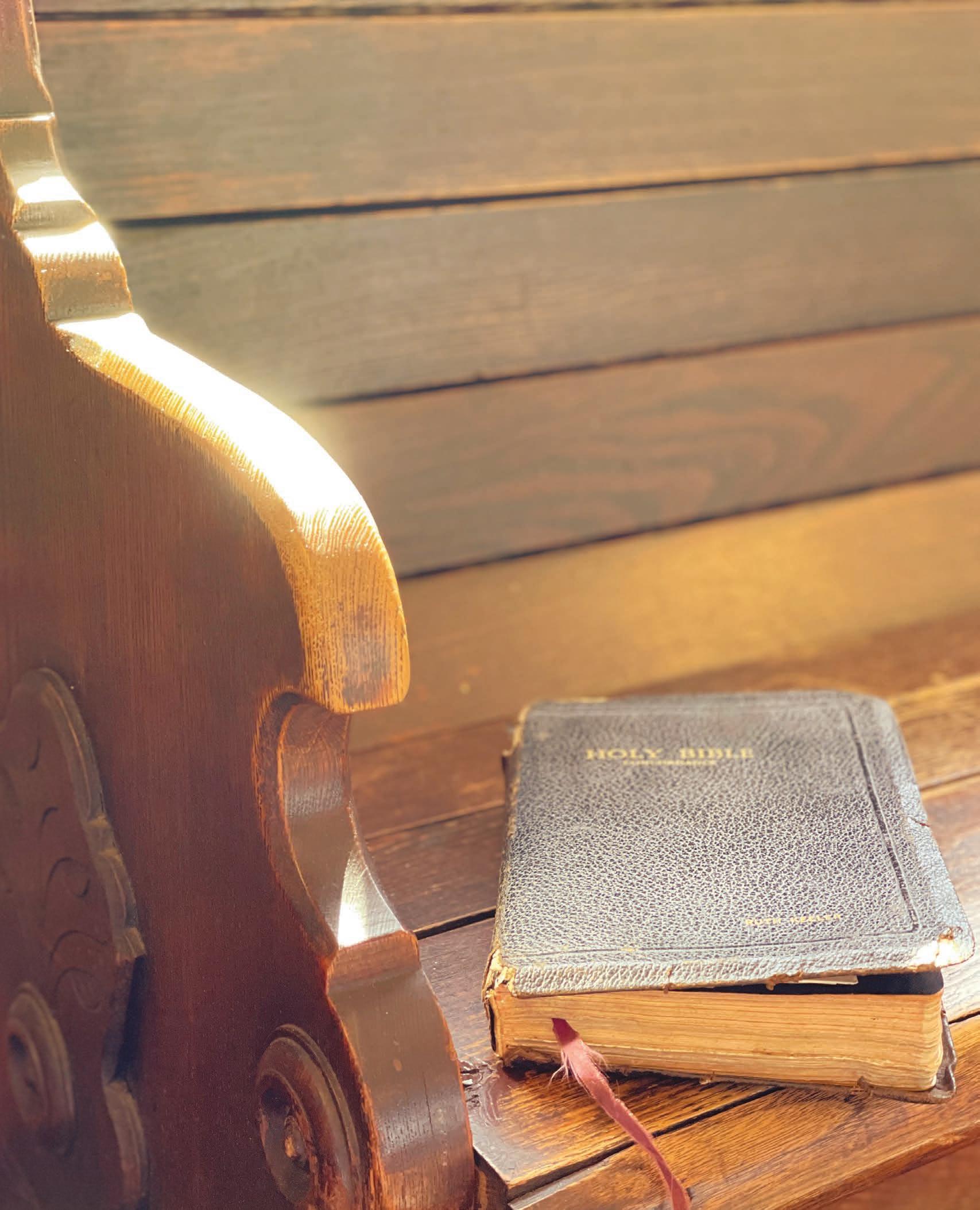
Themes in James Research in Orthodoxy
Relections on the 10 Commandments

The Good Bad News
Your Tragic History Matters
Church Order
Being a Mentor
What Life’s All About Highlight on Prison
Ministry
The Cry for Love
Not That Special
Letter to the Editor
The Sin of Abortion
Did You Know?
3 | The Hope of God’s People Mr. Cornelius Van Kempen
For God’s people, Jesus Christ is the only secure hope when traveling through this world. This hope fills with joy in the midst of sorrow.
4 | Heritage, History, and Christian Identity
Rev. Brian De Jong
One of the marks of our society is widespread confusion over identity, gender, and sexuality. Who are we? Where do we fit in? How can we regain our equilibrium? A renewed appreciation for our rich history and heritage as Reformed Christian people is crucial for recovering what has been lost.
7 | Understanding Reformed Worship
Mr. Myron Rau
We know why we worship, but we may not have a good understanding of all the parts of our order of worship.
8 | Themes in James Prayer’s Effectiveness, Divine Alignment, and Power Source
Mr. Gerry Wisz
What is the prayer of faith? What makes it effective, and how does one “tap” its power source? James provides insight into how and why prayer works, and why it may not. He also touts the benefits of stepping into two activities we may not often consider: confessing our sins, not only to God, but to one another and reclaiming the wanderer.
10 | Research in Orthodoxy: Interview with Herman J. Selderhuis
Mr. Micheal Kearney
An interview with Prof. Dr. Herman J. Selderhuis, Professor of Church History and Church Law at the Theological University of Apeldoorn in the Netherlands.
27 | What Life’s All About Rev. Peter Holtvlüwer
13
|
Reflections on the 10 Commandments (1)
Mr. Gaylord Haan
This article contains a discussion about God ‘s expectations for our serving and worshipping Him in our daily lives as they are found in the first Table of the Law.

18

|
The Good Bad News (2)
Rev. William Boekestein
Heidelberg Catechism, Lord’s Day 2, Q&A 3, 4, and 5.
20 | Your Tragic History Matters (3)
Rev. William Boekestein
Heidelberg Catechism, Lord’s Day 3, Q&A 6, 7, and 8.
Does life have meaning? Are we here to “live our best life”? Being created in God’s image holds the answers to these questions and more.
30
|
Highlight on Prison Ministry (2): MINTS Seminary Rev.
Cornelius Hegeman
The Body of Christ is in prison represented by volunteers, family visitors, Christian administrators, guards, chaplains and programs, and through believing inmates.
31 | The Cry for Love
Editor
A short heartfelt true story, reflecting on 1 John 4:7.
32
|
Not That Special: The Search for Humility (2)
Mrs Vanessa Le
22
|
Church Order Articles 7 and 8
Rev. Greg Lubbers
Article 7: This brief article summarizes the orderly process for a vacant congregation to call a minister of the Word from within its own federation of churches.
Article 8: This subsequent article addresses the procedures for a vacant congregation that is led to consider calling a minister of the Word that has been ordained and served outside of the congregation’s federation of churches.
25 | Being a Mentor
Mrs.
Annemarieke Ryskamp
We are all called to be encouragers and mentors to the glory of Christ.
Humility is realizing that we are not that special, and following Christ’s example of looking out for the interests of others.
34 |
Letter to the Editor
Revisiting the need for a Reformed reorientation to technology use, self, and caring for others.
Cover layout/design concept, composition and church bench photography by Jeff Steenholdt.
35
|
The Sin of Abortion: Its Effects and Cure
Elisabeth Bloechl
We all know abortion is harmful, but do we realize how much living in a society that applauds abortion harms everyone; including us? Praise God for providing the cure!
38 | Did You Know?
Editor
The Protestant Reformation.
Contents | May/June | Volume 73 | Issue 3
The Outlook | 2
The Hope of God’s People

Everyone has a hope, but where does this hope come from? Many say, “I hope for the best, or I hope so.” This type of hope has no foundation. It has nothing to hold on to. God’s people have a sure hope in Christ, but they do miss his sensible presence when he withdraws himself from them. “Hope deferred maketh the heart sick: but when the desire cometh, it is a tree of life” (Prov. 13:12). They become prisoners; only Christ can set them free. “It is of the Lord’s mercies that we are not consumed, because his compassions fail not. They are new every morning: great is thy faithfulness. The Lord is my portion, saith my soul; therefore will I hope in him” (Lam. 3:22–24). The stronghold they are told to turn to is Christ and him crucified. This is their hope.
Indwelling sin is the prison cell from which God’s people would be freed. Hope is the key which unlocks this prison cell, and hope is given by faith in Jesus Christ. “For we are saved by hope: but hope that is seen is not hope: for what a man seeth, why doth he yet hope for? But if we hope for that we see not, then do we with patience wait for it. Likewise the Spirit also helpeth our infirmities: for we know not what we should pray for as we ought: but the

Spirit itself maketh intercession for us with groanings which cannot be uttered” (Rom. 8:24–26).
Hope is the anchor that God’s people hang on to, giving them strength to travel the pathway of life through the wilderness to their eternal home. Wherein God, willing more abundantly to shew unto the heirs of promise the immutability of his counsel, confirmed it by an oath: That by two immutable things, in which it was impossible for God to lie, we might have a strong consolation, who have fled for refuge to lay hold upon the hope set before us: Which hope we have as an anchor of the soul, both sure and stedfast, and which entereth into that within the veil; Whither the forerunner is for us entered, even Jesus, made an high priest for ever after the order of Melchisedec.
(Heb. 6:17–20)
This hope shows God’s love for them; therefore they love him in return.
God’s people long to be conformed and transformed to be like him, their redeemer and husband. “My soul fainteth for thy salvation: but I hope in thy word . . . Uphold me according unto thy word, that I may live: and let me not be ashamed of my hope” (Ps. 119:81, 116). Oh, the sorrow and
shame that is felt when they grieve the indwelling Holy Spirit who gives them repentance. Repentance brings forgiveness and reconciliation bringing and restoring hope. What a wonder there is a Savior who says, “Look unto me and be ye saved, all the ends of the earth: for I am God and there is none else” (Isa. 45:22).
What is your hope centered on? To hope only for this life is a hope which shall end in eternal despair, but our hope centered on Jesus Christ will bring eternal joy. “And then shall they see the Son of man coming in a cloud with power and great glory. And when these things begin to come to pass, then look up, and lift up your heads; for your redemption draweth nigh” (Luke 21:27–28). “Fear none of those things which thou shalt suffer: behold, the devil shall cast some of you into prison, that ye may be tried; and ye shall have tribulation ten days: be thou faithful unto death, and I will give thee a crown of life” (Rev. 2:10).
My hope is built on nothing less than Jesus’ blood and righteousness;
I dare not trust the sweetest frame,
but wholly lean on Jesus’ name. On Christ, the solid Rock, I stand;
all other ground is sinking sand.
Edward Mote, “My Hope Is Built on Nothing Less” (1834)
Mr. Cornelius VanKempen
Turn you to the strong hold, ye prisoners of hope. –Zechariah 9:12a, KJV May/June 2023 | 3
known as Case, has been married to Susan for fifty-seven blessed years. They attend and are members of Heritage Reformed Congregation in Grand Rapids, MI.
HOPE
Heritage, History, and Christian Identity
As thoughtful observers of our cultural moment, American Christians are witnessing an identity crisis of unprecedented proportions. Especially among young people, there is widespread confusion over issues of gender, race, and sexual orientation. The growing bewilderment is matched by increasing rates of suicidal ideation. As more and more teenagers contemplate and plan the taking of their own lives, the despair overwhelming our society is undeniable.
In the wake of this unfolding catastrophe, government agencies offer supposed solutions. Many of their proposed programs only facilitate the downward slide toward cultural extinction. At most, they can diagnose some of the causes of the problem. Yet identifying the reasons for a crisis does nothing to avert the disaster.
In all honesty, certain important components of a healthy society have been lost. The importance of religious institutions, the centrality of two-parent families, the need for respectful public debate, and the practice of widespread selfgovernment are just a few of those components that have disappeared from view.
The growing consensus seems to be that we are hurtling toward the edge of a cliff that drops into an abyss.
If western society does not halt its insane rush toward self-destruction, we will go over the edge and into
the abyss. Society, as we know it, cannot continue indefinitely on this trajectory. If we are not attacked and overwhelmed by our enemies, we will implode sooner or later. Most likely it will happen sooner.
Coming back to our thoughtful Christian observers, what are we to do? How do we answer this challenge, and at least guard our children and grandchildren from catastrophic social collapse? Do we have any answers to offer to a clueless culture that senses the serious questions but has no substantial answers of its own?

I would suggest that heritage and history can help us maintain (or regain) a Christian identity that has been fading away. Please understand that I’m not proposing a generic heritage and history. Binge-watching the History Channel will do us no good whatsoever. What we need is a rediscovery of a distinctively Christian history and heritage. Indeed, a distinctively Reformed Christian heritage is needful, if we are to recover a sense of our identity. But what is a “heritage”? What do we mean by that term? In the Old Testament, there are various references to heritage. One instance is Psalm 135:12 (New King James Version), “And gave their land as a heritage, a heritage to Israel His people.”
The Hebrew word nachalah is often translated “inheritance” but can also be rendered “heritage.”
The International Standard Bible
Encyclopedia (rev. ed.) sorts this out: heritage is “that which is passed down to descendants or succeeding generations, distinguished from ‘inheritance’ in that ‘heritage’ frequently refers to things other than property (i.e. traditions) while ‘inheritance’ is used especially of property.” So a heritage is the nonmaterial aspects that are passed down—the non-material parts of an inheritance.
Having grown up in a Christian Reformed home, church, and school, I have a clear sense of my own heritage—my Dutch Reformed heritage. That heritage is deeply connected to history—not only my personal and family history but also the history of Dutch Reformed Christianity, especially in the United States. Having such a heritage brings certain advantages and benefits, but it also has pitfalls connected to it. Spiritual pride that boasts in one’s heritage is always out of place.
What do I include in the heritage I have received? Here are some of the more valuable customs that have been handed down to me: attending church on Sunday morning and evening, rain or shine. My parents, and their parents before them, made church attendance a priority. We had to be very sick to miss a worship service. That was as true for the evening service as it was for the morning service. Even when we were on vacation, we would seek out a sound church where we could attend morning and evening worship.
Rev. Brian De Jong
The Outlook | 4
Reading the Bible at mealtimes is another component. Growing up in my parents’ home, we opened each meal with a prayer of thanksgiving for the food we were about to enjoy. After everyone had finished eating, my dad would bring out the Bible and read a portion to us. He sometimes explained what he had read, and at other times he asked us questions. And he then always closed with prayer. That was just what we did, and it seemed natural and normal to me.
Prioritizing family times and extended family gatherings is another part of the heritage I received. Whenever there were family reunions, we would make plans to attend. If we could meet for a meal with other members of our family, that was prioritized. Vacations often included aunts and uncles sitting around the campfire, roasting marshmallows, listening to campfire stories, and enjoying conversation. Family mattered to my parents and grandparents, so family matters to me too. Humor was another enjoyable ingredient in my upbringing. We loved to laugh and to tell jokes and make puns that evoked laughter from others. Though we knew how to be sober and serious, the De Jongs also knew how to have a good time.
Most of all, we grew up with a deep commitment to Jesus Christ and to his Word, the Bible. Here my late father, Dr. Norman De Jong, set the tone most clearly. He was devoted to his Savior and zealous for the honor and glory of Christ in this world. Though faith is not passed down from father to son, because it is a gift of the Holy Spirit to our hearts, yet my father’s faith made a deep impression upon me. The Spirit used my father’s example to shape my faith and mold me into the person I am.
I am thankful to the Lord for the heritage I have received and the advantages that has afforded to me in life. I am also conscious of the need to pass these benefits to my children and grandchildren, that they may also enjoy these good things.
Connected to heritage is the study of history—of Reformed Christian history. Here we need to hit the books again, to read and consider the history of God’s dealings



We are gradually being shaped into “the measure of the stature which belongs to the fullness of Christ”
May/June 2023 | 5
–Ephesians 4:13
with his people. This goes all the way back to the beginning of the world, as we read and study the Scriptures. In both Old and New Testaments, we find much history that tells us how God deals covenantally with his people.
Take the book of Judges, for instance. In Judges, we see a historical pattern playing out. The people of God are unfaithful and fall into the idolatry of the nations around them. God is displeased with his people for their violations of his commandments, and so he sends oppressors to afflict them. As Israel groans under the tyranny of their foreign adversaries and cries to God for help, he has mercy on them and raises up a judge to deliver them. The judges come as saviors for the Israelites and set them free from bondage. The people then live peacefully under the rule of that judge for a time. When the judge dies, the cycle starts over again. This Judges cycle is seen throughout church history, not only in the Bible but also after the New Testament era concluded.
Along with the diligent study of the inspired history found in Scripture, there is also value in studying uninspired historical accounts. The life, trials, and struggles of Athanasius are worth serious consideration. Similarly, the story of Augustine is fascinating and edifying. Examining the councils of the early church and their dealings with various heretics and heresies sheds light on many modern cults. Even the dark history of the medieval Roman church with its corruptions and compromises can help us
appreciate God’s marvelous work during the Reformation of the 1500s. A serious Christian will never regret getting to know Martin Luther, John Calvin, John Knox, and many other Reformers. Likewise, the English Puritans and Scottish Presbyterians have stories to tell that can equip us for life in our own time.
One era of history has become increasingly interesting to me—the period from 1850 to the present. This was the era of great men of God, like Charles Spurgeon and J. C. Ryle. That time also witnessed the rise of liberal theology, German higher criticism, and modernism in many of the mainline churches in the United States.
In the Presbyterian Church in the USA, modernism gradually took control of the structures and institutions of that once great denomination. Those who questioned modernism, such as J. Gresham Machen, John J. DeWaard, Arthur F. Perkins, and others, were persecuted and prosecuted. Eventually they were disciplined and put out of their church. In June 1936, they came together to form the Orthodox Presbyterian Church (OPC) as a continuation of the lost heritage of Presbyterianism. The OPC continued the Reformed witness and Presbyterian presence to a culture that was quickly moving away from Old School orthodoxy and Christian identity.
My ecclesiastical journey started, as I said, in the Christian Reformed Church. During college, I attended a Presbyterian Church in America (PCA) church and became
Rev. Brian De Jong
acquainted with Presbyterianism. After being ordained to the gospel ministry and serving within the PCA, I transferred to the OPC. This has been my home for the last twenty-three years. Among my greatest privileges is to serve as the archivist and historian of my presbytery and to be on the Committee for the Historian of the OPC. In these two capacities I have come to understand and appreciate much of our own history and heritage.
If we do not have a sense of our history, we cannot understand our heritage. If we lack both history and heritage, we can have no accurate sense of our Christian identity. Being believers who are savingly united to Christ, we did not drop magically and mysteriously out of heaven. We were born to human parents, raised in families, received an education, and (one hopes) grew up attending church. In church we heard God’s Word read and taught, and we were introduced to the glorious good news of a Savior, who is Jesus Christ the Lord. As God has drawn us to himself by the work of the Spirit, we are being discipled toward maturity. We are gradually being shaped into “the measure of the stature which belongs to the fullness of Christ” (Eph. 4:13).
If this were to become the regular and normal experience for people in our society, the current confusion could dissipate. We could regain our lost equilibrium and recover a sense of propriety and shared purpose. But if ignorance of our history and heritage persists and intensifies, the future looks grim as we are gradually engulfed by cultural confusion.
is the second son of the late Dr. Norman De Jong. He is the pastor of Grace Orthodox Presbyterian Church in Sheboygan, WI. He serves as the archivist and historian of the Presbytery of Wisconsin and Minnesota of the OPC, as well as being a member of the denomination’s Committee for the Historian. He and his wife, DeLou, have six children and eight grandchildren.

The Outlook | 6
Dr. Norman De Jong with sons Brian & Gregory.
Understanding Reformed Worship



Most of us have attended worship services from infancy, but do we really know and understand the various parts of our Reformed liturgy? When we do the same thing over and over for some length of time we often do it without much thought, and worship may be one of those things. We know why we worship, but we may not have a good understanding of all the parts of our order of worship. There are two excellent resources that explain Reformed worship. Rev. Jonathan Cruse wrote a short and easyto-understand book, What Happens When We Worship, published by Reformation Heritage Books. Rev. Cruse takes a look at every act in the
liturgy of Reformed worship, including communion and baptism, and simply explains each act. Reading his book was beneficial, and I found things I hadn’t known or even thought about.

Another beneficial book on Reformed worship is Meeting with God, a study guide to Abraham Kuyper’s Our Worship, written by Michael Kearney and published by Reformed Fellowship, Inc. Kearney condenses what Abraham Kuyper in his book wrote on the various acts of Reformed worship. One might not agree with Kearney’s personal comments on some things, but overall it is a beneficial book in helping to understand this Dutch Reformed theologian’s advice on Reformed worship.
 Mr. Myron Rau
is past president of the Reformed Fellowship board.
Mr. Myron Rau
Mr. Myron Rau
is past president of the Reformed Fellowship board.
Mr. Myron Rau
May/June 2023 | 7
(ISSN 8750-5754) (USPS 633-980)
“Exhorting you to contend earnestly for the faith which was once for all delivered to the saints.”
—Jude 3
Journal of Reformed Fellowship, Inc.

Send all copy to:
Editor, Dan Van Dyke
3718 Earle S.W. Grandville, Michigan 49418
Email: djvan1951@gmail.com
Website: www.reformedfellowship.net
Board of Trustees
Al Rumph, President; Rev. Casey Freswick, Vice President; Rev. Doug Barnes, Secretary; Gaylord Haan, Treasurer; Rev. Andrew Compton, Vice-all; Glenn Hop, Rev. Jerome Julien, Michael Kearney, Tom Kooienga, Rev. Mark Vander Hart, David Vander Meer, and John Velthouse, Directors
Editor: Dan Van Dyke
Contributing Editor: Dr. Cornelis P. Venema
General Manager: Hope Staal
Manager's Assistant: Shelly Terpstra
Art, Design & Production: Jeff Steenholdt
This periodical is owned and published by Reformed Fellowship, Inc., a religious and strictly non-profit organization composed of a group of Christian believers who hold to the biblical Reformed faith. Its purpose is to advocate and propagate this faith, to nurture those who seek to live in obedience to it, to give sharpened expression to it, to stimulate the doctrinal sensitivities of those who profess it, to promote the spiritual welfare and purity of the Reformed churches and to encourage Christian action.
The publishers of this journal express their adherence to the Calvinistic creeds as formulated in the Belgic Confession, the Heidelberg Catechism, the Canons of Dort, and the Westminster Confession and Catechisms.
The Protestant
The Protestant Reformation was one of the most significant cultural, political, and religious events in the history of Europe and helped shape the modern world. It was a complex event spanning over 100 years, which radically changed the way people understood themselves, society, and ultimately how one defines truth. The Protestant Reformation (1517–1648) helped propel the spread of literacy, since its emphasis was personal piety and appropriation of scripture, including the use of catechisms for children. In Germany, overall literacy was estimated as low as five percent in rural areas, with urban literacy peaking at thirty percent. The Protestant Reformation led to modern democracy, skepticism, capitalism, individualism, civil rights and many other values we cherish today. The Reformation impacted nearly every academic discipline, notably the social sciences, like economics, philosophy and history. Protestants shared three basic convictions: The Bible is the ultimate authority in religious matters, Human beings are saved only by God’s grace and all Christians are priests. The Reformation cost eight million lives. It also redrew the map of Europe.







Reformed Fellowship holds the copyright to all material published in this magazine. All contributions represent the personal views of the writers and do not necessarily reflect the opinions of the members of Reformed Fellowship, Inc.
Subscription Policy
The Outlook (USPS 633-980) is published six times per year (bi-monthly) by Reformed Fellowship, Inc. Annual subscriptions are $30.00 per year in the United States; outside the US, $36 per year (foreign subscribers please remit payment in US Funds; Canada add GST). Digital download subscriptions are $12 annually, and are included FREE with a print subscription. Unless a definite request for discontinuance is received, it is assumed that the subscriber wishes the subscription to continue without the formality of a renewal order and he will be billed for renewal. Anyone desiring a change of address should notify the business office as early as possible in order to avoid the inconvenience of delayed delivery. Zip code should be included. Periodical postage paid at Grandville, MI and at additional mailing offices.

POSTMASTER:
Send address changes to The Outlook, 10857 W. Parmalee Rd., Middleville, MI 49333-888 Advertising Policy
1. The Outlook cannot accept announcements or advertising copy inconsistent with the stated purpose of RFI. All advertisements and announcements must be approved by the RFI board prior to publication. We reserve the right to reject, edit, or request resubmission of announcement text or advertising copy. Books, pamphlets, or CDs to be advertised are to be screened as to author and content prior to publication of the advertisement, and such material should not conflict with the stated purpose
of RFI. We reserve the right to limit the size of all announcements and advertisements, and to limit the number of issues in which they appear.
2. All advertisements or announcements are to be submitted via email to office@reformedfellowship.net or to the business office a10857 W. Parmalee Rd., Middleville, MI 49333-888, and must be received at least two months before the publication date.
3. Fees for B&W/grayscale ads: $190 for full-page, $115 for half-page, $65 for quarter-page.
4. Fees for full-color ads: $235 for full-page, $140 for half-page, $80 for quarter-page.
5. Fees for preparing artwork for ads (in addition to advertising costs above) are $140 for full-page, $115 for half-page, $90 for quarter-page. These fees are waived if advertising art is print-ready. Please submit manuscript in an email or as an MS-Word.doc attachment. If you have pictures or images, please include as JPG files.
6. Preferred final file format for print-ready ads: High Quality Print PDF.
7. Ad sizes specifications:
8.75 x 11.25, trim 8.5 x 11"
Full page non-bleed: 7.25 x 9.75"
Half page horizontal bleed: 8.625 x 5.25"
Half page horizontal non-bleed: 7.25 x 4.5"
Quarter page (non-bleed) 3.5 x 4.5"
8. This Advertising Policy supersedes all prior policies, resolutions, or other statements.
Editorial Office
Dan Van Dyke
3718 Earle S.W. Grandville, Michigan 49418
Email: djvan1951@gmail.com
Circulation Office
10857 W. Parmalee Rd., Middleville, MI 49333-8881 (616) 532-8510
Business Mailing Address

10857 W. Parmalee Rd., Middleville, MI 49333-8881
Email: office@reformedfellowship.net
Luther Zwingli
Melanchthon
Beza
Knox
Wycliffe
The Outlook | 8
Calvin


10857
Middleville, MI 49333-8881
(616) 532-8510
$1
URCNA 2022 Directory
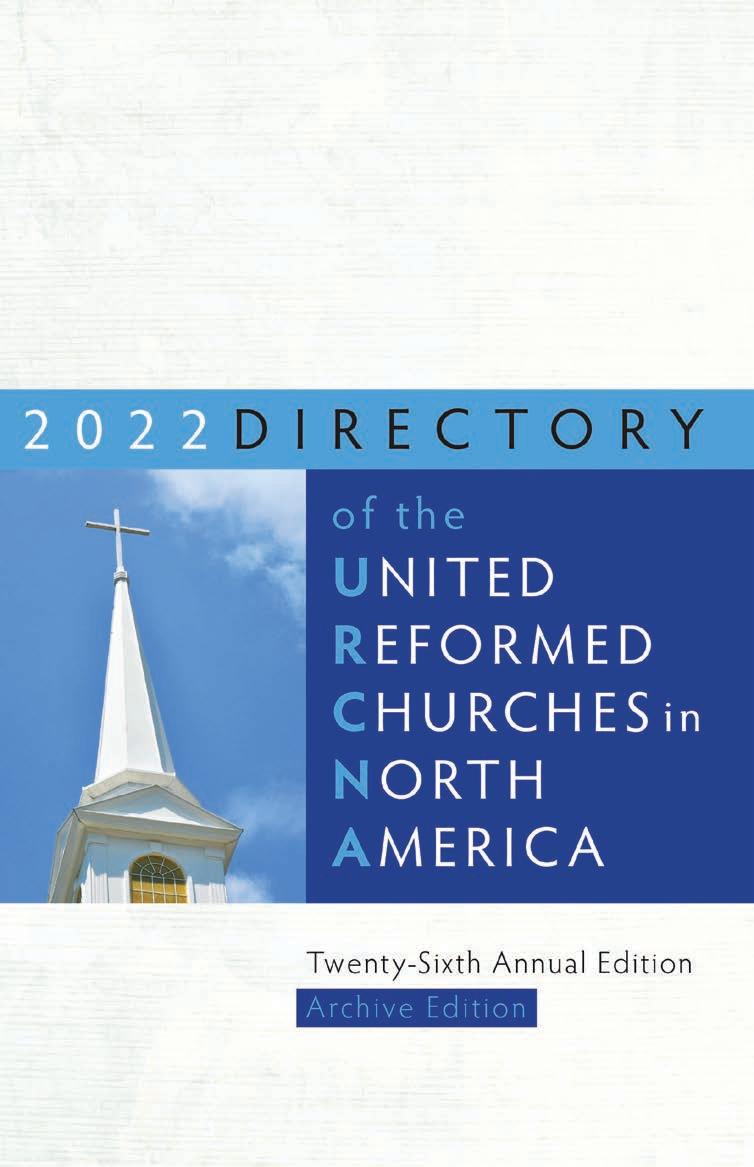
Directory contents
Introduction
Statistics by Classis
Classis Central U.S.
Classis Eastern U.S.
Classis Michigan
Classis Pacific Northwest
Classis Southwest U.S.
Classis Western Canada
Classis Southwestern Ontario
Classis Ontario East
Statistics–Grand Total by Classis
Clerk Contact by Classis and Council
Individual Church Profiles
Abbreviations and Symbols
Directory of Ministers
Directory of Missionaries
Directory of Candidates for Ministry
Directory of Licensed Exhorters
Remembering Those Who Served
Paperback - 224 pages
To order please... visit: www.reformedfellowship.net email: office@reformedfellowship.net or call 616.532.8510
Functionary Addresses, Board of Directors and Standing Committees
Listing of Churches by Province/State
Former Names of United Reformed Churches
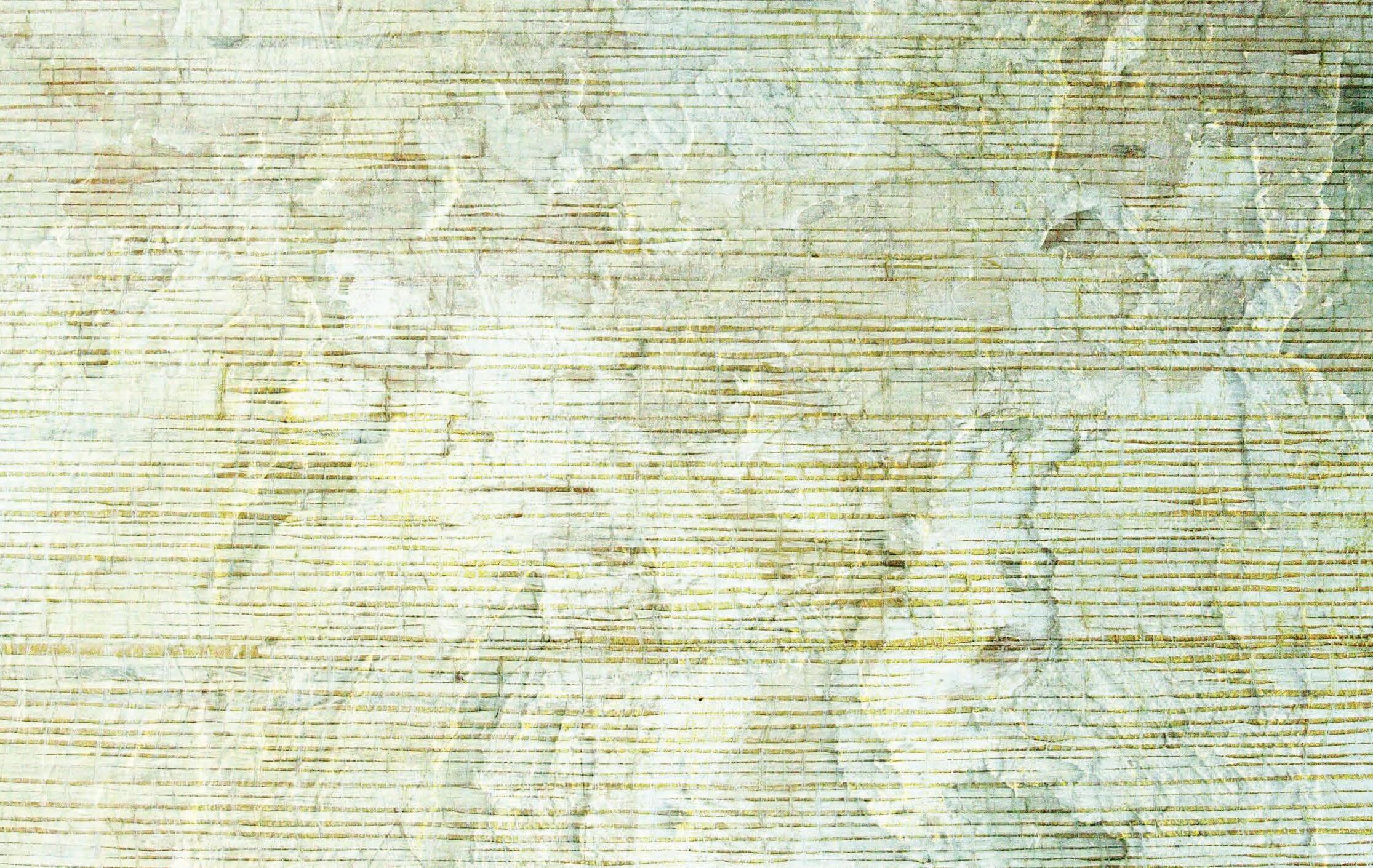
Former United Reformed Churches
Extra pages for notes
Reformed Fellowship, Inc.
W. Parmalee Rd.
3.0 0
Twenty-Sixth Annual Archive Edition of the directory of the United Reformed Churches in North America.
Printed by permission of URCNA Synod.




















 Mr. Myron Rau
is past president of the Reformed Fellowship board.
Mr. Myron Rau
Mr. Myron Rau
is past president of the Reformed Fellowship board.
Mr. Myron Rau











